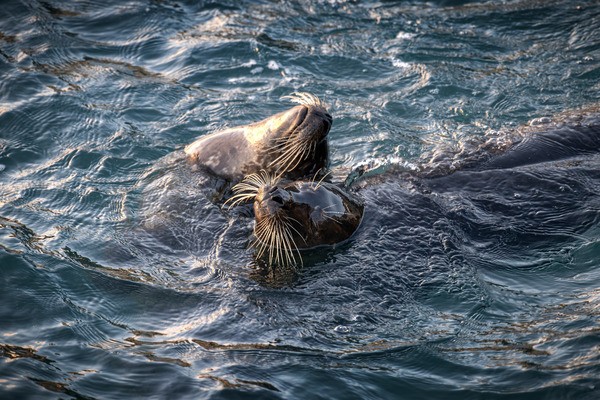-
The Biden-Harris Administration’s Executive Order: Safeguarding U.S. federal waters from offshore oil and gas development to protect marine ecosystems.
-
Impact of Offshore Drilling: Understanding the environmental, ecological, and socio-economic consequences of oil spills and exploration activities.
-
Marine Biodiversity and Conservation: The significance of preserving ocean habitats for endangered species and maintaining ecosystem balance.
-
Human and Economic Benefits: How the protection of federal waters supports coastal economies and communities dependent on marine resources.
- Future Perspectives and Global Implications: Setting a precedent for international ocean conservation efforts and sustainable marine resource management.
The Biden-Harris Administration’s Executive Order represents a monumental step in ocean conservation, focusing on protecting vast expanses of U.S. federal waters from the threats posed by offshore oil and gas development. This decisive action prohibits mineral exploration, leasing, and other related activities in critical areas, including the Pacific Ocean, the Atlantic Ocean, the Eastern Gulf of Mexico, and the Northern Bering Sea. By securing these marine areas, the administration has proactively ensured the long-term health and stability of these aquatic ecosystems, acknowledging the essential role oceans play in carbon sequestration and climate regulation.
Offshore oil and gas exploration present substantial risks to the environment. Oil spills are notoriously difficult to contain and clean, resulting in severe damage to marine life and coastal habitats. The 2010 Deepwater Horizon disaster offers a stark reminder of the devastating and long-lasting impacts such incidents can have on the ocean and coastal economies. Toxic substances released during a spill can decimate plankton populations, the foundation of the marine food chain, affecting species all the way up to apex predators. Moreover, the physical disturbance from drilling disrupts seabed habitats, which are often home to rare and sensitive species. This executive order, therefore, acts as a pre-emptive measure to avert potential disasters and their dire ecological consequences.
The preservation of marine biodiversity is crucial for maintaining the intricate balance of ocean ecosystems. Many endangered and threatened species, such as certain whales, sea turtles, and seabirds, rely on protected marine environments for feeding, breeding, and migration. These waters also harbor significant coral reefs, which support diverse marine life. Protecting these ecosystems is vital for their recovery and resilience against climate change. Additionally, by preventing offshore development, the executive order helps combat ocean acidification and increasing temperatures that threaten marine biodiversity.
From a socio-economic standpoint, safeguarding federal waters holds immense benefits for human populations and local economies. Healthy ecosystems provide invaluable services, such as fisheries that support coastal communities and drive significant economic activity. Coastal tourism benefits from pristine marine environments, drawing visitors keen to experience unspoiled natural beauty and marine wildlife. This protection enhances recreational opportunities, such as diving and boating, offering a sustainable model of economic development rooted in environmental stewardship. By securing these resources against destructive practices, the administration underlines the importance of sustainable economic policies.
The ramifications of this executive order extend beyond U.S. borders. By setting a robust example, it encourages global efforts in marine conservation and sustainable resource management. As nations grapple with biodiversity loss and climate emergencies, collaborations toward ocean protection are increasingly crucial. The international community can look to this historic action as a blueprint, inspiring initiatives that prioritize marine health and resilience. By championing such conservation efforts, there lies potential to foster international policies that mitigate human-induced harm and promote global ocean sustainability.
The Biden-Harris Administration’s proactive measure reflects a pivotal acknowledgment of the ecological, economic, and social value inherent in preserving ocean spaces. This landmark decision underscores a shift towards environmental priorities that address the complex challenges of conserving marine ecosystems. Through safeguarding these vital waters, the United States sets a course for a sustainable future, emphasizing the intertwined fates of humanity and the natural world.
*****
Source Description
We’re starting the new year with action and gratitude! 🌊💙Today the Biden-Harris Administration (@whitehouse) issued a presidential order to protect U.S. federal waters in the Pacific Ocean, Atlantic Ocean, the Eastern Gulf of Mexico, and the Northern Bering Sea from offshore oil and gas development in perpetuity. We know that when things go wrong, the impacts are devastating, with long-lasting effects on the ocean, the coast, and people who depend on those natural resources. We applaud the administration’s action to permanently safeguard vital ocean ecosystems from mineral exploration, leasing, and development activities. Join us in sea-lebrating this historic milestone in ocean conservation!


